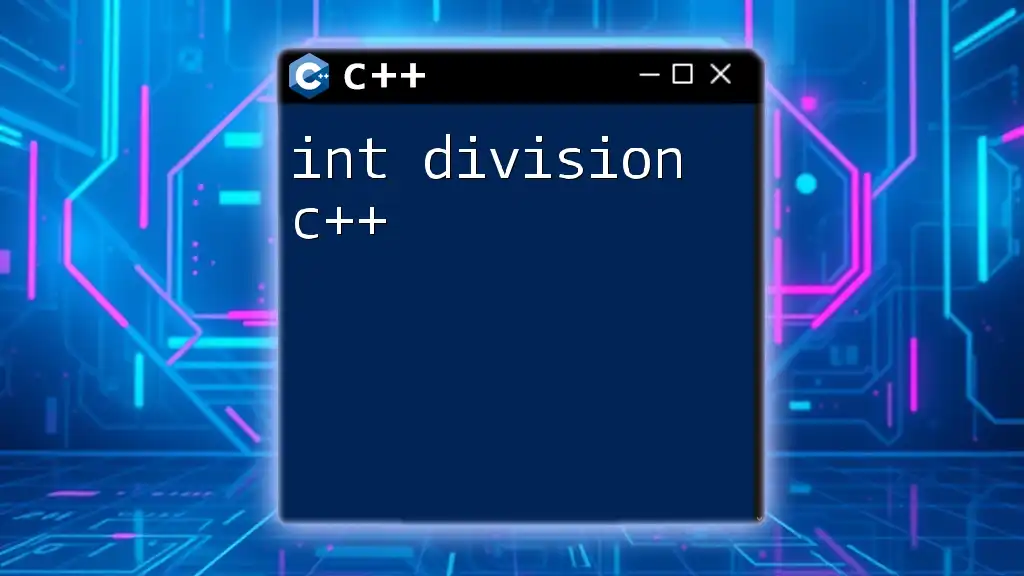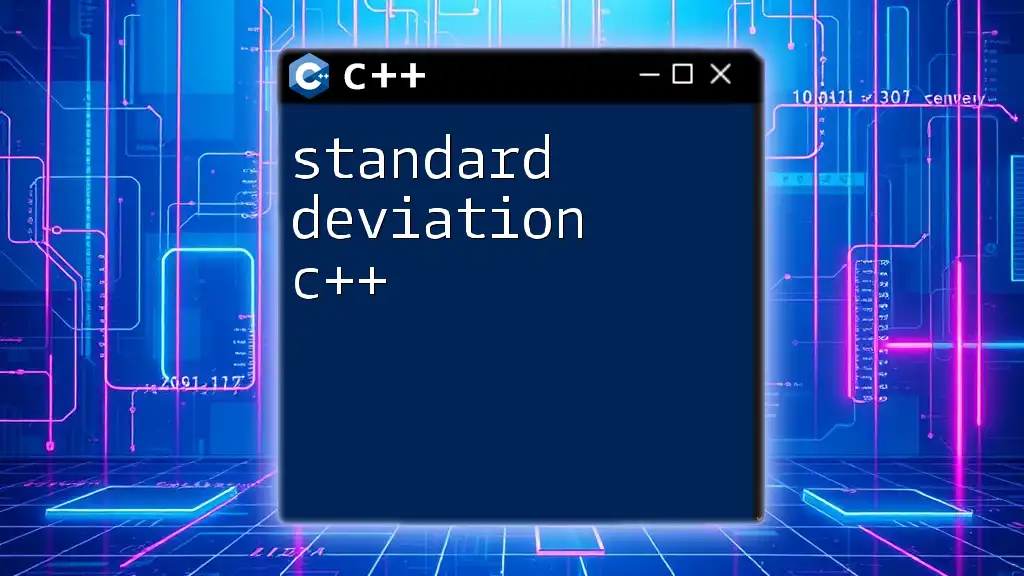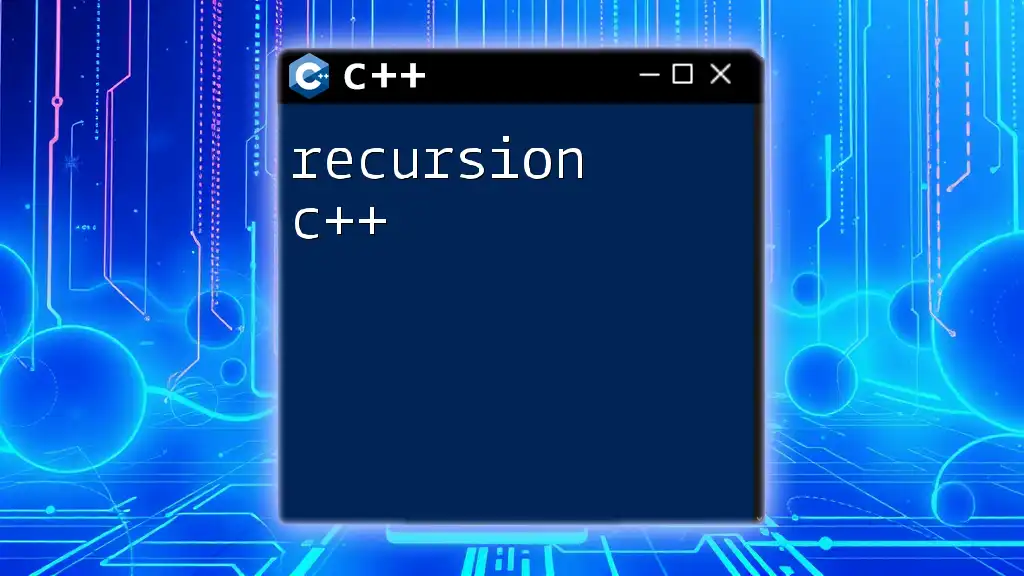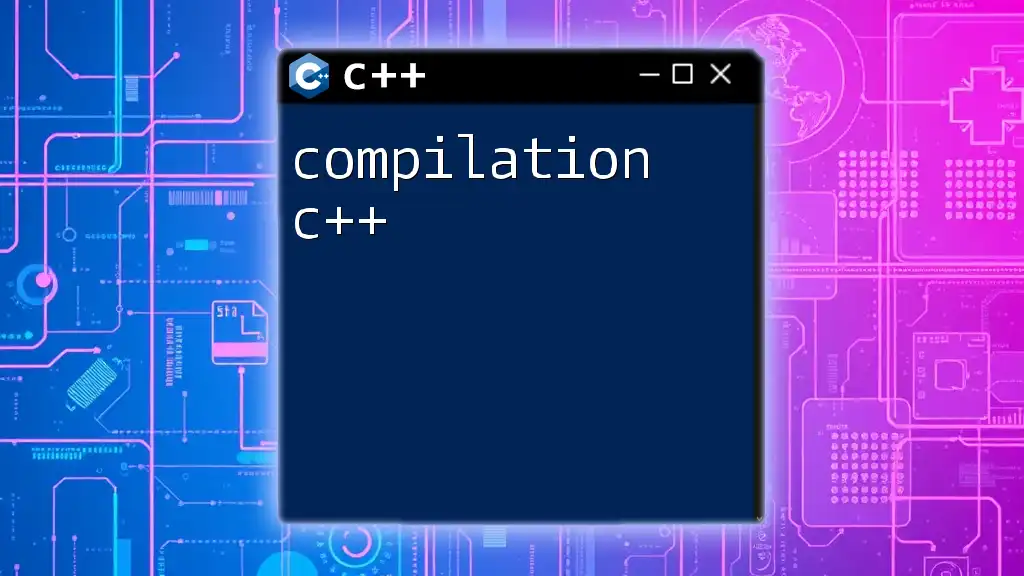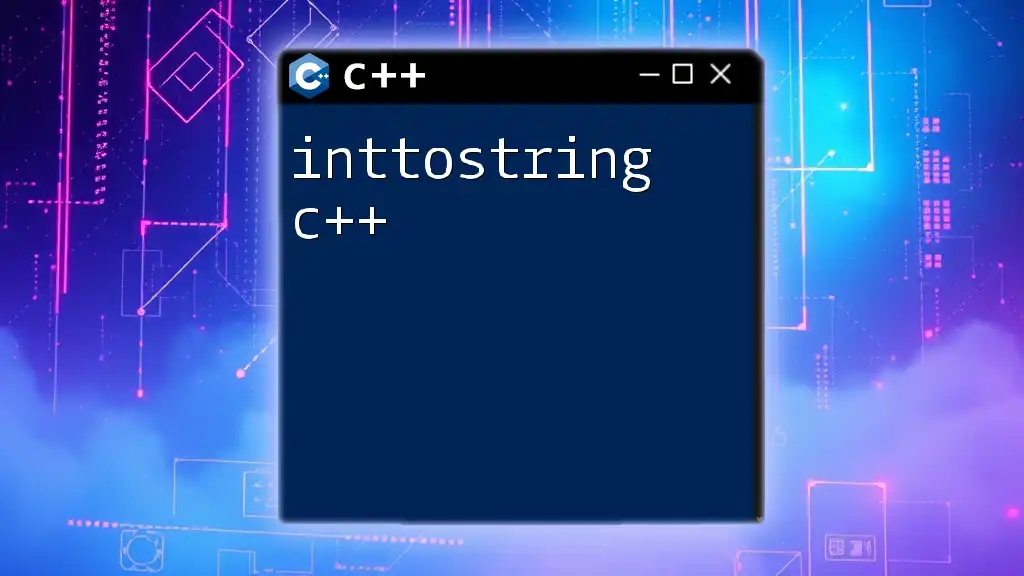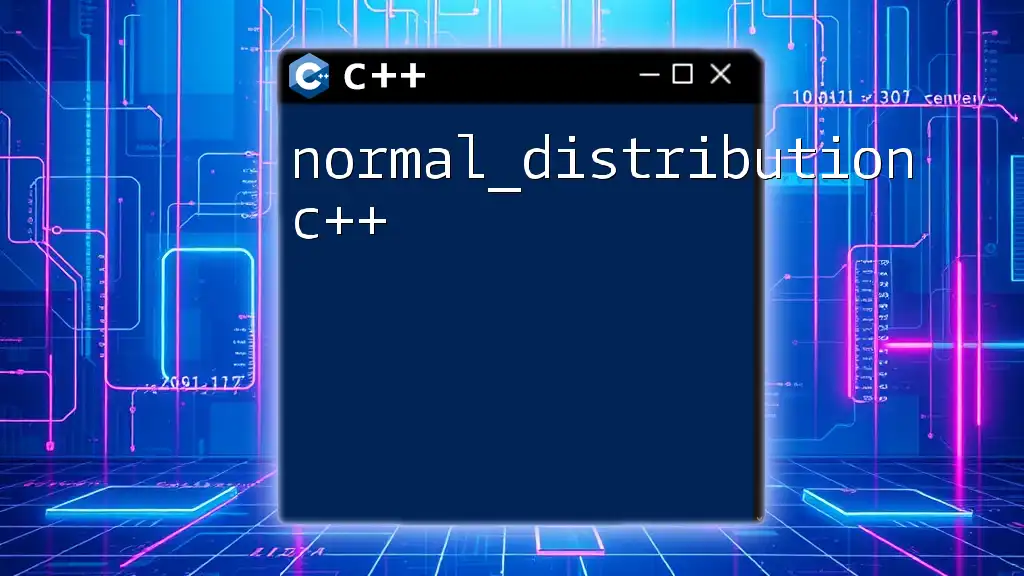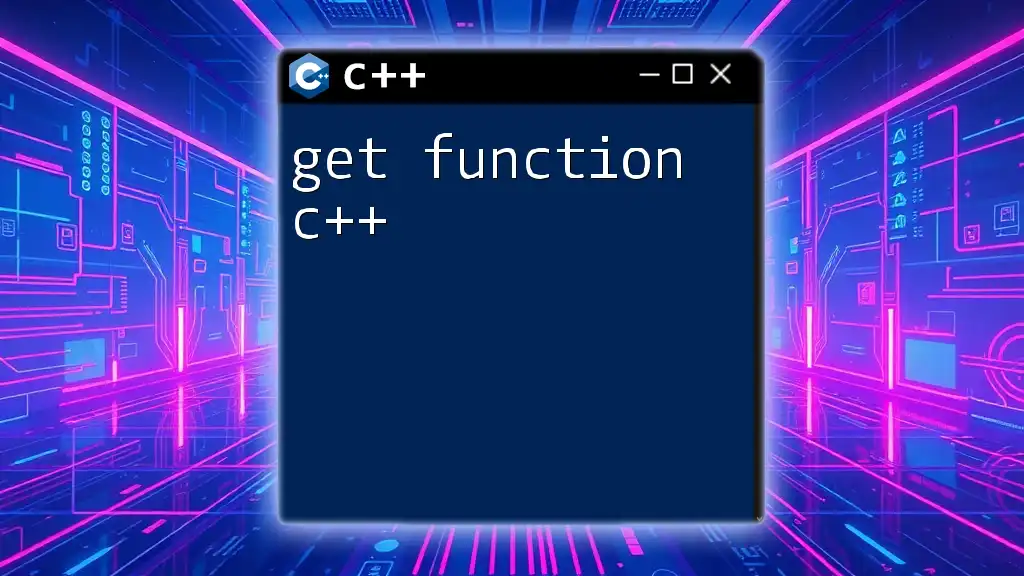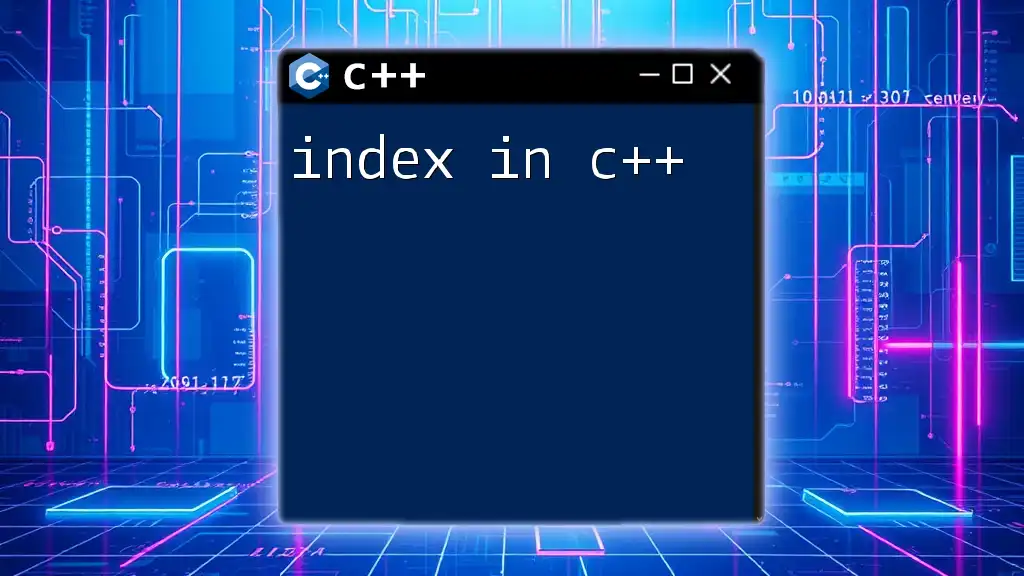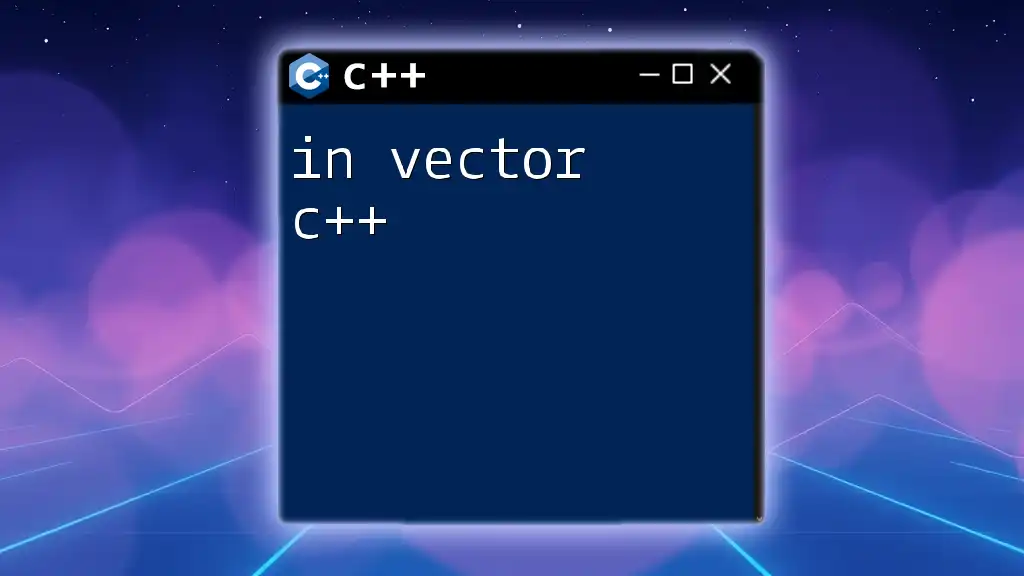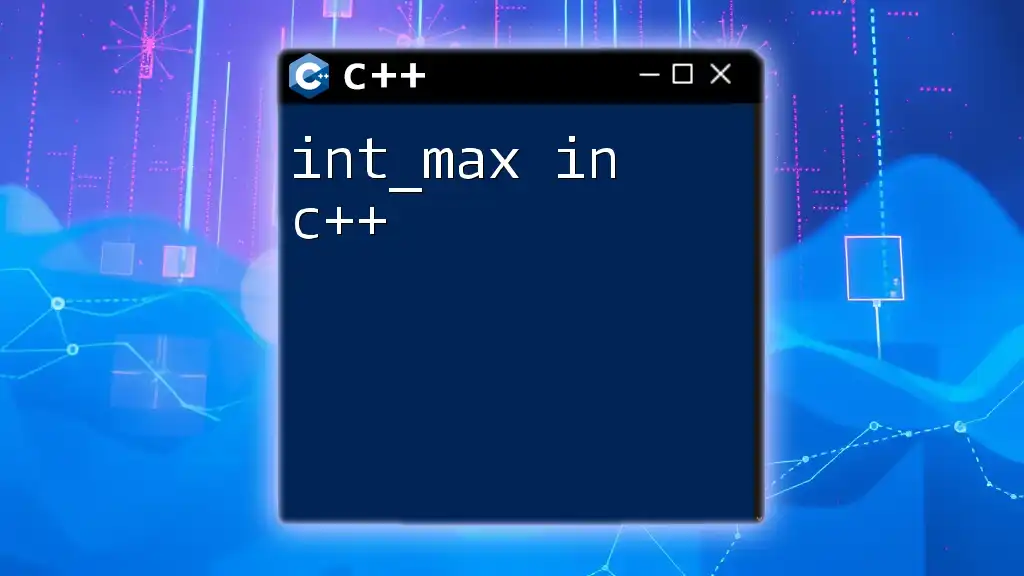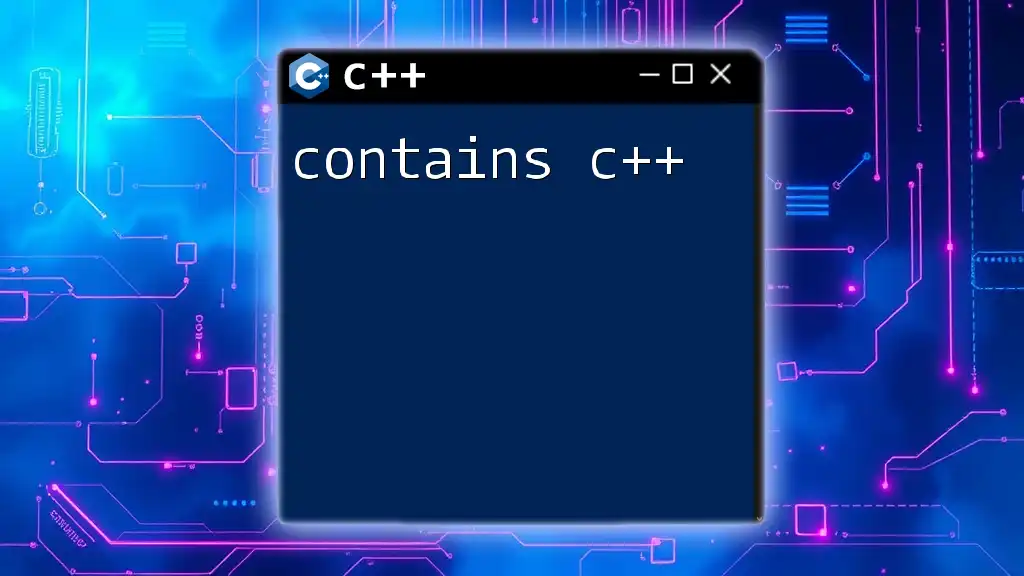In C++, integer division occurs when both operands are integers, resulting in the quotient without any remainder. Here's an example:
int a = 7;
int b = 3;
int result = a / b; // result will be 2
What is Integer Division?
Integer division is a fundamental operation in programming where whole numbers (integers) are divided. In this operation, any fractional part that results from the division is discarded, leading to a rounded down (or truncated) result to the nearest whole number. This distinguishes it from traditional division, where results can be fractional.
Understanding and mastering integer division is crucial for programming tasks that require precision and accuracy in calculations, particularly in scenarios involving counting and indexing.
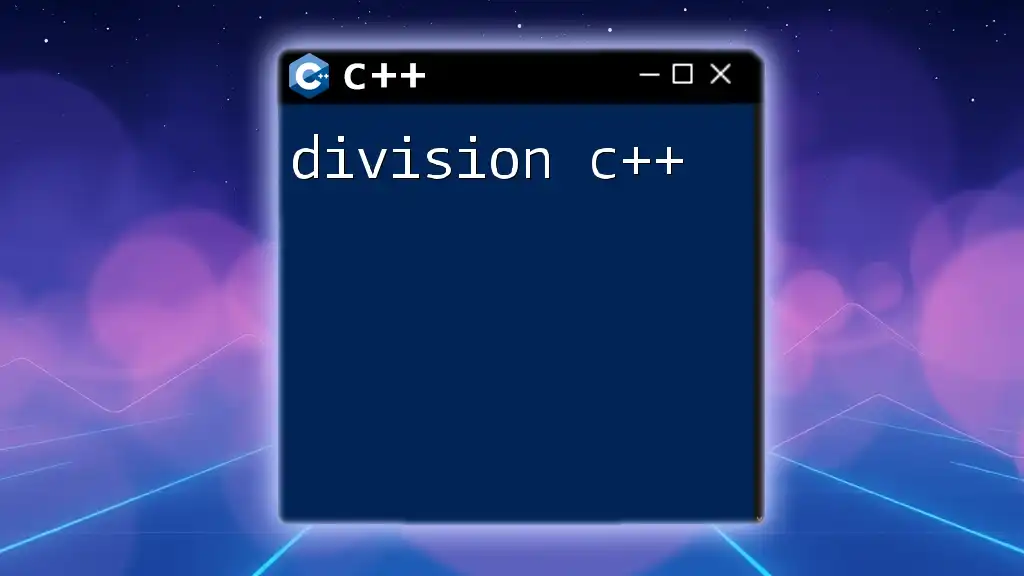
The Mechanics of Integer Division in C++
In C++, the integer division operation is executed using the `/` operator, just like standard division. However, when both operands are integers, C++ performs integer division by discarding any non-integer parts, effectively rounding down the result.
Syntax of Integer Division
The syntax for performing integer division is straightforward. Here’s a simple example:
int a = 10;
int b = 3;
int result = a / b; // result will be 3
In this snippet, dividing `10` by `3` returns `3` instead of `3.33`. This behavior is integral to how integer division works in C++.
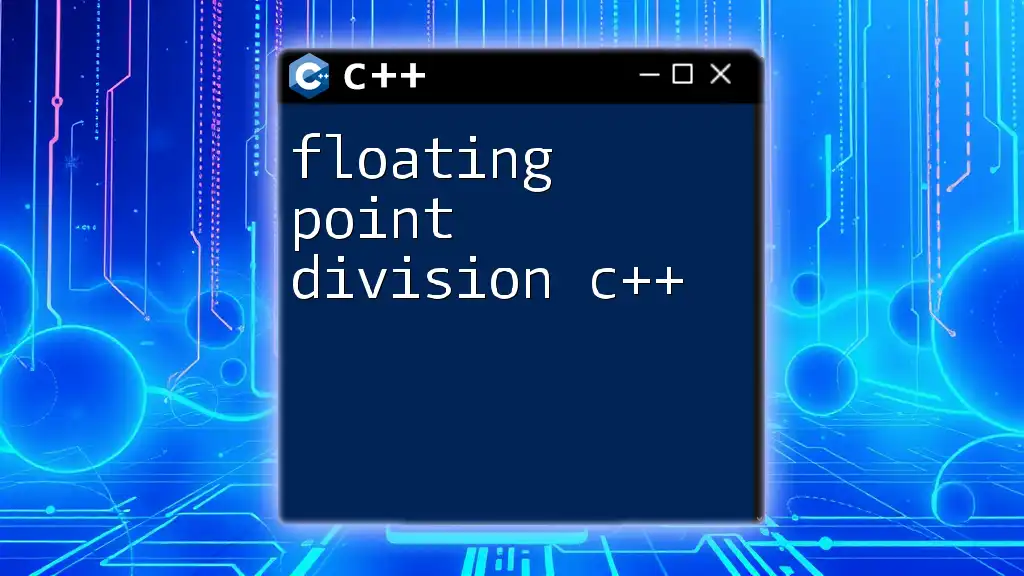
Characteristics of C++ Integer Division
Division Truncation Behavior
C++ truncates the result of integer division toward zero. This means:
- If both integers are positive, the result is straightforwardly rounded down.
- If both are negative, the result remains negative but still rounds down to the next closest integer.
Consider the following examples:
int positiveResult = 7 / 4; // Will be 1
int negativeResult = -7 / 4; // Will be -1
In the first case, `7` divided by `4` results in `1`, and in the second, `-7` divided by `4` results in `-1`. It's essential to understand this behavior, especially when unexpected results can arise.
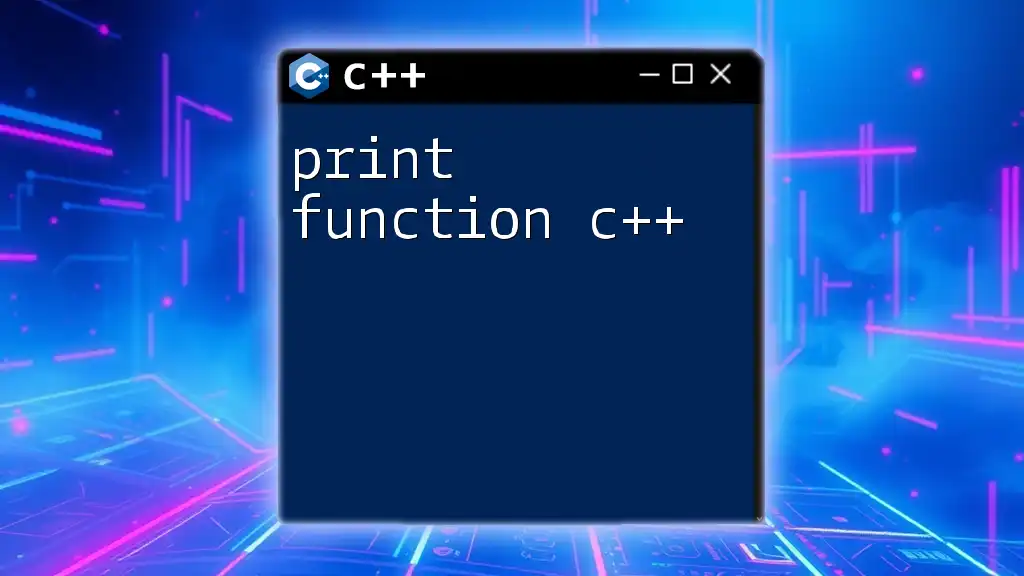
Common Pitfalls in Integer Division
Division by Zero
One of the most critical issues in programming is division by zero, which will cause a runtime error in C++. For instance:
int a = 10;
int b = 0;
// a / b will cause a runtime error
To prevent such errors, it’s essential to check that the divisor is not zero before performing the division.
Misunderstanding Results
Surprising outcomes in integer division can lead to misunderstandings. For example, consider the behavior with negative numbers:
int result = -9 / -4; // result will be 2, not -2
While novice programmers may expect negative results, here both negative numbers yield a positive outcome of `2`. Being aware of these nuances helps avoid logical errors in code.
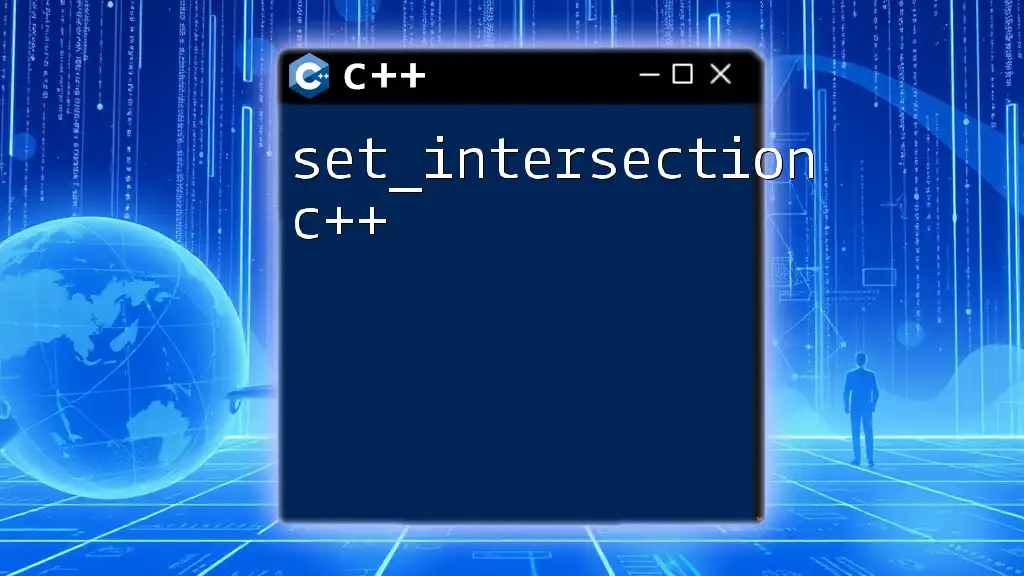
Practical Applications of Integer Division
Integer division is prevalent in numerous practical applications. It’s commonly used in:
- Finance: Calculating whole units, such as dividing amounts among different categories or individuals.
int totalAmount = 100;
int numberOfPeople = 3;
int amountPerPerson = totalAmount / numberOfPeople; // amountPerPerson will be 33
- Data Structures: When indexing elements or segmenting data into chunks.
int elementCount = 10;
int chunks = elementCount / 3; // To find out how many complete triplets
In both cases, integer division allows for effective calculations where only whole numbers make sense.
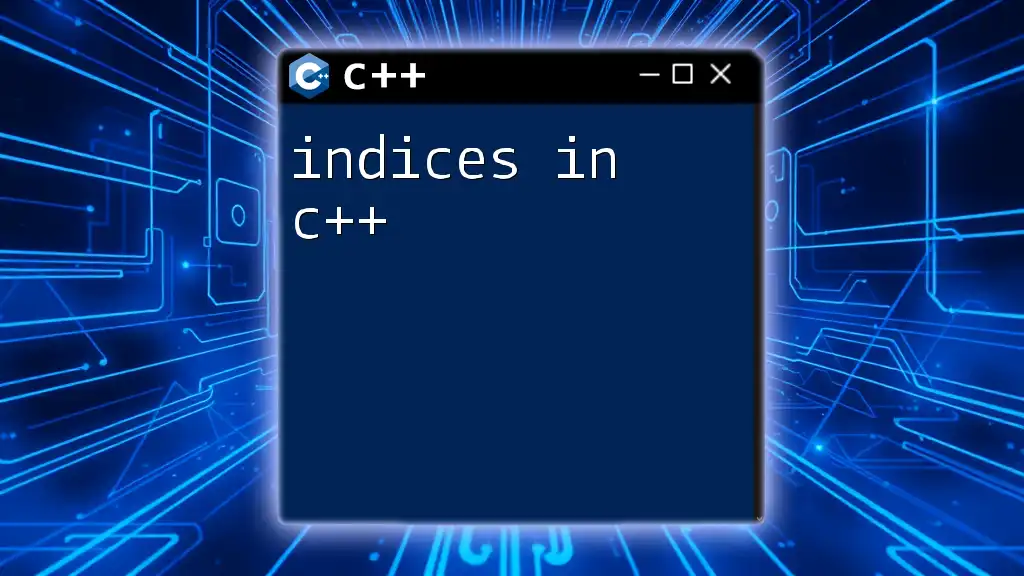
How to Perform Safe Integer Division
To avoid common pitfalls, it is essential to perform safe integer division. This typically requires implementing checks to prevent division by zero. Here’s how:
if (b != 0) {
int safeResult = a / b;
} else {
// Handle division by zero here
}
This method ensures that your program remains robust and does not terminate unexpectedly due to errors related to division.
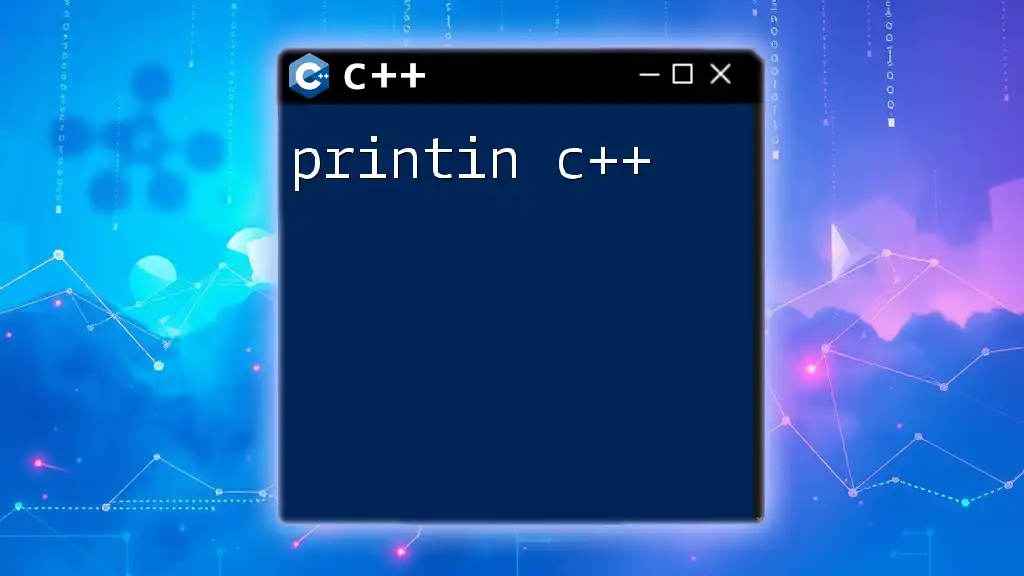
Alternatives to Integer Division
In cases where more precision is required, floating-point division can be utilized. By converting an integer to a double before performing the division, you can keep the decimal parts intact. Here’s how you can achieve this:
double preciseResult = static_cast<double>(a) / b; // Will give a more accurate floating-point result
Using `static_cast<double>` transforms the integer operand into a floating-point number, allowing for more precise results while maintaining the desired level of accuracy in computations.
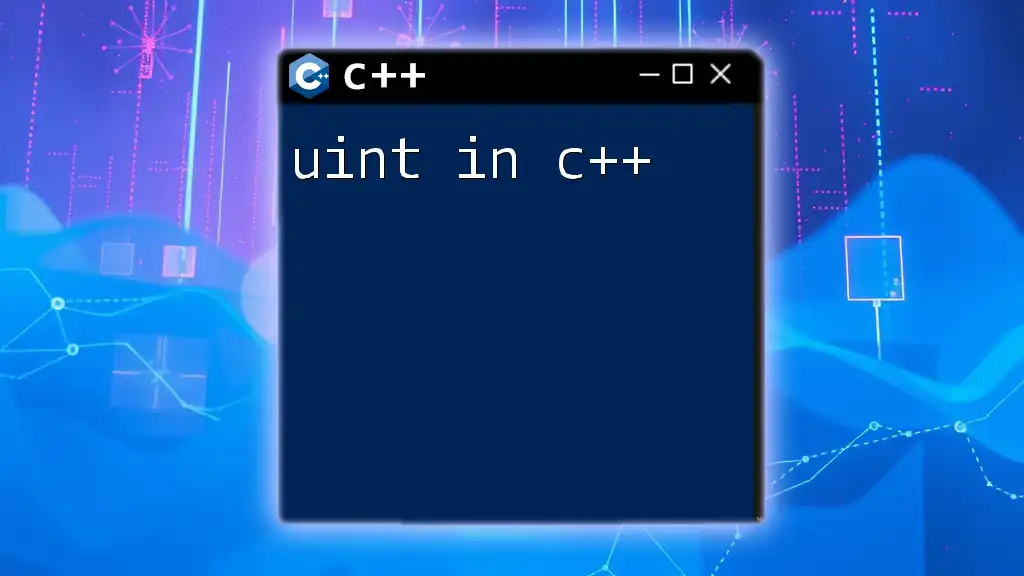
Conclusion
In summary, understanding int division in C++ is essential for effective programming. Being aware of truncation behavior, potential pitfalls, and safe practices ensures that programmers can harness integer division correctly and efficiently. As you delve deeper into C++, remember to practice integer division scenarios to build a strong foundation. For continued learning, explore additional resources to deepen your knowledge and mastery of this vital topic.

